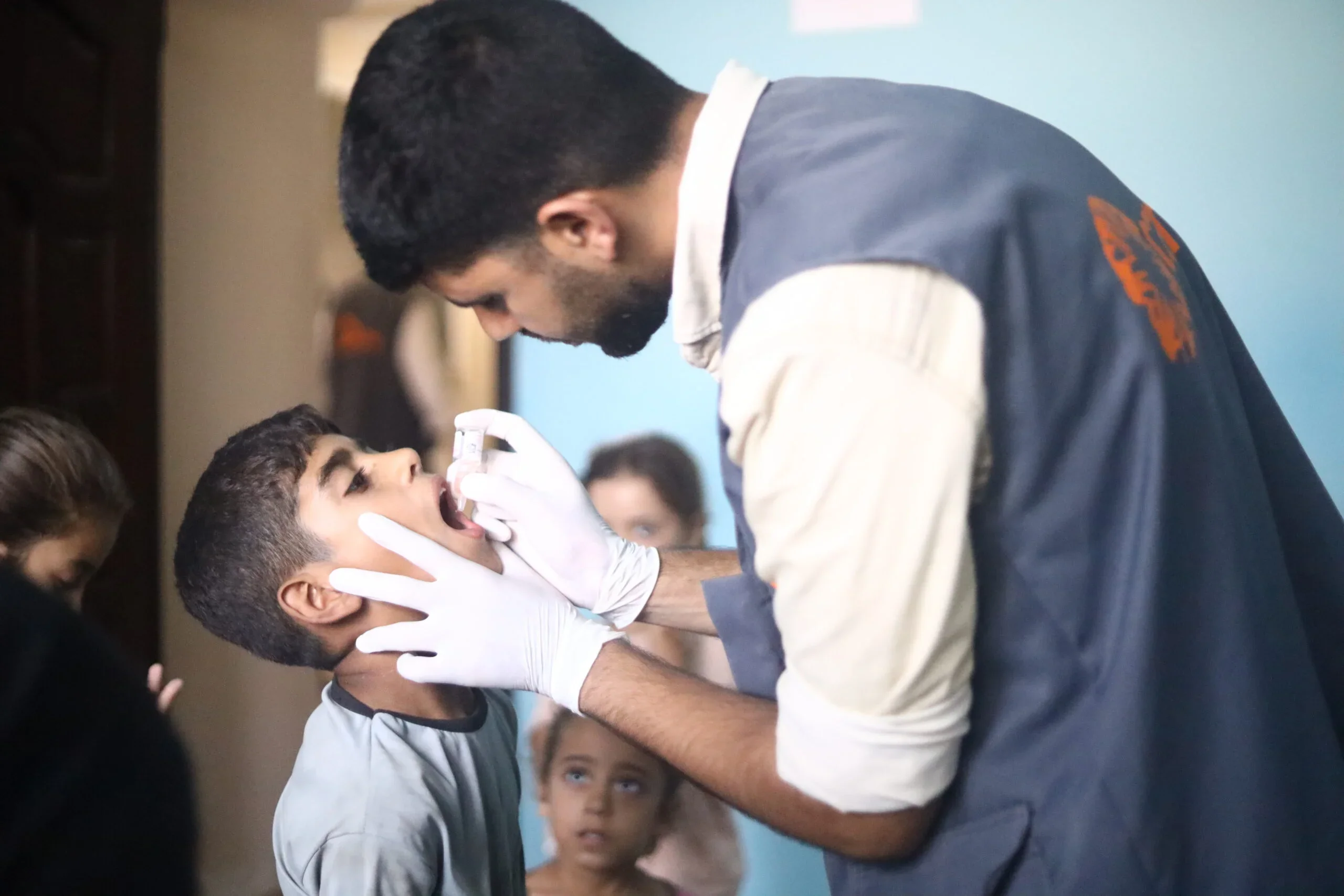September 3, 2024 – During the first three days of the polio vaccination campaign that started on 1 September 2024, CARE vaccinated 2,124 children under the age of 10 at its primary healthcare center in Deir Al-Balah, providing each child with two drops of the novel oral polio vaccine type 2 (nOPV2).
The campaign, led by World Health Organization (WHO) and UNICEF in collaboration with partners, will aim to immunize 640,000 children in Gaza from a highly infectious disease that could cause irreversible paralysis.
“The polio outbreak is another sobering example of how severely restricted humanitarian access and the lack of a lasting ceasefire, 11 months on, will magnify otherwise avoidable and preventable human suffering, and make delivering humanitarian assistance to those in need extremely difficult and inadequate at best,” said Jolien Veldwijk, CARE Palestine (West Bank and Gaza) Country Director said.
The disease was eliminated from the Gaza Strip a quarter of a century ago, but reemerged during the current conflict, which saw the systematic destruction of the healthcare system, the obliteration of sewage and water infrastructure, as well as increased restrictions on the entry of fuel needed to pump out and safely dispose of wastewater flooding the streets.
There will be two vaccinations rounds. The first 4-day round started on 1 September, while the second is also planned for September after a seven-day break.
The WHO said that over 1.6 million doses of nOPV2 will be delivered to Gaza to stop the transmission of polio.
There are various distribution centers (drop points) where the vaccines will be stored until they are distributed to different health partners. If any health facility participating in the campaign faces any shortages, they will be able to contact and procure more vaccines from the WHO-run distribution points, most of which are concentrated in the middle area of Gaza.
Overcrowding at displacement sites, the lack of access to safe potable water, and lack of access to basic hygiene supplies have all contributed to the rapid spread of various types of communicable yet preventable diseases, including polio.
The poliovirus was first detected in July 2024 in six wastewater samples collected the previous month from various locations in Khan Younis and Deir al-Balah. Since then, three children, including a 10-month-old baby, presenting with suspected acute flaccid paralysis (AFP), a common symptom of polio, have been reported in the Gaza Strip. They were confirmed to have contracted polio after the results of their stool samples, which had been sent to Jordan for analysis, tested positive for type 1 poliovirus.
Media inquires: usa.media@care.org.

